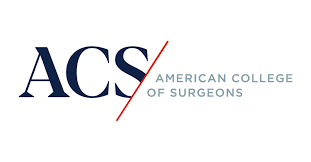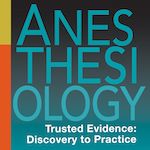Negative pressure wound therapy reduces SSI across surgical specialties

Editor's Note Compared with standard wound dressings, single-use negative pressure wound therapy (NPWT) devices can reduce the incidence of surgical site infection (SSI) in at-risk patients with closed surgical incisions across a range of surgical specialties, according to a data review highlighted in the February issue of the American Journal…
Study: Microglia help awaken the brain from anesthesia, protect neurons from aftereffects

Editor's Note A new study finds that the same cells that are involved in preventing damage to the central nervous system – called microglia – help to awaken the brain following anesthesia. The findings appeared January 4 in the journal Nature. Using electron-microscopy-based synaptic reconstruction, the researchers could see the…
Study: Dedicated smoke evacuators reduce exposure to particles, VOCs

Editor's Note Dedicated smoke evacuators reduce the number of particles and levels of acetaldehyde and formaldehyde in surgical smoke during laparotomy, according to a study published online October 25, 2023 and in the March 2024 issue of the Journal of the American College of Surgeons The randomized, double-blind clinical trial…
Study: Early postoperative endoscopy safe, effective for esophageal cancer patients

Editor's Note Using early postoperative endoscopy to detect anastomotic leakage after minimally invasive esophagectomy does not increase postoperative adverse events, according to a study published February 10 in the journal Surgery. Anastomotic leakage is one of the most severe adverse events of minimally invasive esophagectomy for esophageal cancer. Often deadly,…
Study: COVID-19 could elevate risk of surgical mortality, complications

Editor's Note Due to its impact on a variety of organ systems, COVID-19 could elevate perioperative risks even among patients with mild symptoms, according to a study published in the February 2024 issue of Anesthesiology. Focused on patients presenting for elective inpatient surgery between April 2020 and April 2021, the…
Mood changes, sleep quality improve after primary hyperparathyroidism surgery

Editor's Note Benefits to mood and sleep should be considered in preoperative consultations with patients with primary hyperparathyroidism, according to a study published February 12 in the journal Surgery. The researchers’ recommendation reportedly departs from the latest recommendations published according to the primary hyperparathyroidism surgical consensus, which exclude these neuropsychological…
ChatGPT study prompts questions about clinical applications for large-language-model AI

Editor's Note Although ChatGPT has shown human-level performance on several professional and academic benchmarks, a recent study of its potential for clinical applications raised questions among surgeon evaluators. Findings were reported in the journal Surgery on January 20. Specifically, researchers tested OpenAI’s general-purpose large-language model on questions from the Surgical…
Thyroid hormone replacement boosts risk of abdominal surgery complications

Editor's Note: Preoperative thyroid hormone replacement independently predicts operative morbidity and length of stay following major abdominal surgery, according to a January 23 report in the American Journal of Surgery. To determine the association between preoperative thyroid hormone replacement and complications following major abdominal surgery, researchers performed a retrospective case…
“Hub,” “spoke” hospital care inefficiencies differ depending on surgical complexity

Editor's Note: Complex surgeries at high-volume (“hub”) hospitals are less likely to result in death or serious morbidity (DSM) than other hospitals within a system (“spokes”), the American Journal of Surgery reported December 25. However, patients undergoing common surgical care procedures at hubs are more likely to experience prolonged length…
Phone-based follow-up safe, effective for general surgery patients

Editor's Note Postoperative telehealth for general surgery patients is both safe and effective, according to a study published on December 22 in The American Journal of Surgery. The study consisted of a retrospective review of 1,075 veterans undergoing qualifying procedures at a medical center from June 2019 to September 2021.…

 Free Daily News
Free Daily News